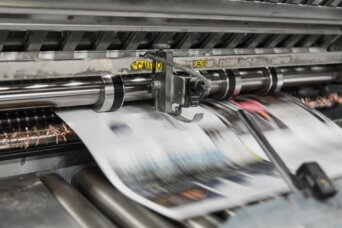- About
- Topics
- Picks
- Audio
- Story
- In-Depth
- Opinion
- News
- Donate
- Signup for our newsletterOur Editors' Best Picks.Send
Read, Debate: Engage.
| topic: | Freedom of Expression |
|---|---|
| located: | Bosnia and Herzegovina, Albania |
| editor: | Katarina Panić |
A latest survey has found that almost one third of citizens of Bosnia and Herzegovina associate the media with lies, fraud and manipulation. They perceive the media as saturated with fake news, hate speech and partial provision of information.
“When someone says ‘media outlet,’ the first thing that comes to my mind is fake news and unnecessary information,” one of the respondents, a 33-year-old man from Banja Luka, said.
The media sector is characterised by donations and subventions from public budgets and commercial contracts of governments and public companies based on murky and arbitrary procedures, which points to potential political and financial influence, reads a report produced with the financial support of Sweden, and in co-operation with the OSCE Mission to BiH.
“I watch two evening news, I never watch just one. I have to hear both sides and understand what are the things that do not fit in and which topics are avoided,” another respondent, a 29-year-old woman from Banja Luka, said.
On the other hand, in Albania, Prime Minister Edi Rama banned two journalists from attending his press conferences. He did not like reporter Kelvin Muka asking Foreign Minister Olta Xhacka about a strategic investment project that her husband won. He did not like reporter Ambrozia Meta asking about a ruling Socialist Party MP who had been arrested.
Examples of citizens’ mistrust towards journalists and scandalous behaviour of highly positioned public figures are two sides of the same coin – the media being captured by political forces.
Another common issue is the lack of a legal framework that would regulate the media sector. The European Federation of Journalists (EFJ), along with another 15 media freedom groups and human rights activists, is co-signing a policy brief on the upcoming European Media Freedom Act (EMFA) as the European Commission is currently finalising the draft proposal.
“Journalism is a public good and, where the market is no longer able to sustain quality journalism, the government has a role in intervening and ensuring it can,” the joint statement reads.
The media community warns the transparency of media ownership and media funding is a fundamental tool to ensure media plurality, accountability and independence.
“Unlike many types of business, media companies have the unique power to shape public opinion. Knowing who owns and controls the media is fundamental for democratic resilience,” EFJ stated.
Photo by Bank Phrom

